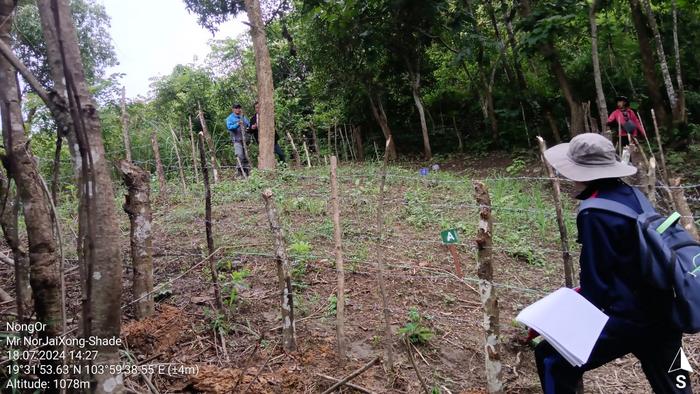For over a decade, farmers across the world have been working hand-in-hand with researchers at the Alliance of Bioversity International and CIAT and their collaborators to develop a better way to test new crop varieties and improve food security in their communities.

Credit: Ammaly Phengvilaysouk / CGIAR initiative on Mixed Farming Systems
For over a decade, farmers across the world have been working hand-in-hand with researchers at the Alliance of Bioversity International and CIAT and their collaborators to develop a better way to test new crop varieties and improve food security in their communities.
Food insecurity is on the rise worldwide, with 345 million people in 82 countries suffering acute food insecurity in 2022; making it more important than even to test and roll-out new crop varieties adapted to changing local conditions and in keeping with local needs and capabilities.
But it wasn’t always so easy to get farmers and agricultural researchers on the same page: not so long ago, most crop varieties and other technologies were tested in large-scale field plots under generic conditions. This meant there was little attention paid to how weather conditions affected crop yield and there was also little interest or buy-in from farmers.
Jacob van Etten, Principal Scientist and Director for Digital Inclusion, explains that tricot, (an abbreviation for triadic comparison of technologies) was originally developed to create a more cooperative “citizen science” focus, allowing new crop varieties to be tested directly in farmers’ fields, in the same context where they will hopefully be grown after the study.
“It’s the interaction between people and technology that drives innovation,” he says, “We are still doing methodological research on how we can design trials in a way that farmers can get out of it that they want to get out of it.”
From Citizen Science to Farm Collaborators
Brazilian scientist Kauê de Sousa, a researcher at the Alliance of Bioversity International and CIAT started working with tricot back in 2016, as a data analyst for the first set of data generated in India.
“Tricot helped to put the farmers’ fields at the center of the agricultural experimentation: unlike previous approaches, farmers’ don’t evaluate or comment in someone else plot, but in their own small plot,” de Sousa says, “This increases collaboration and makes the communication more interesting, not only to farmers and researchers, but to the whole community.”
A 2024 study involved hundreds of common bean smallholder farmers from 140 villages in the Trifinio region of El Salvador, Guatemala, and Honduras, evaluated tricot; a group-based participatory variety testing approach and a control approach to evaluate the effectiveness of the different approaches.
The study’s first author, Martina Occelli, explains that the researchers found that national programs can benefit from the cost-effective, equitable, externally valid, and scalable nature of citizen science on-farm testing approach for the goal of informing breeding programs.
“A citizen science on-farm testing approach should be used for on-farm testing and a group-based agronomy training could be delivered separately, for example to farmers who have gone through one round of citizen science on-farm testing,” she says adding that a hybrid approach would lead to fewer farmers dropping out of the trial and increase data value.
“It would also benefit farmers through a group-based training approach,” she says.
Watch the video: https://youtu.be/GtoxXBwyrUU
Emerging benefits from farmer-driven research
Van Etten explains that tricot is now mature enough to start thinking about how researchers can organize farmer networks in a way that can scale and build up experience and be more famer-focused.
“We are still doing methodological research on how we can design trials in a way that farmers can get out of it what they want to,” van Etten says, adding that if research is more farmer-driven, they can help guide the technological direction of agronomical research.
“It doesn’t mean that it’s an adversarial idea, it’s about how to put different innovations side by side with farmers.”
Another 2024 paper, “The tricot approach: an agile framework for decentralized on-farm testing supported by citizen science. A retrospective” de Sousa, van Etten and their co-authors explained that there are still key issues to resolve, from how to sustain enthusiasm, skills and financing among the scientific, technical, and farmer communities; to making tricot participants become more representative of the gender and other socio-economic diversity found in farming communities.
As more researchers and private extension networks start to use tricot around the world, more benefits from involving farmers are emerging.
A July 2024 study from Uganda showed that applying the tricot methodology allowed researchers to factor in not only the crop-specific information, but also the culinary preferences (like taste and cookability) of the farmers. The same researchers also explored the role of gender in crop preferences.
Journal
Crop Science
Article Title
On-farm evaluation of cassava clones using the triadic comparison of technology options approach
Article Publication Date
3-Jul-2024



